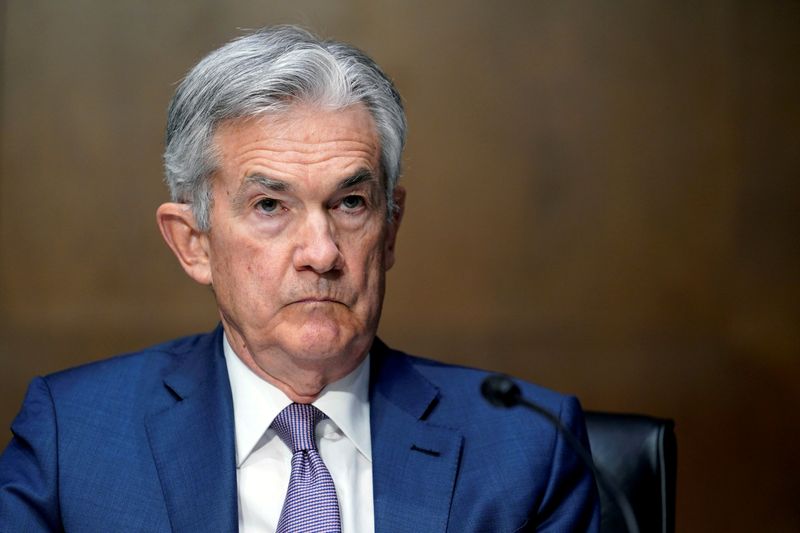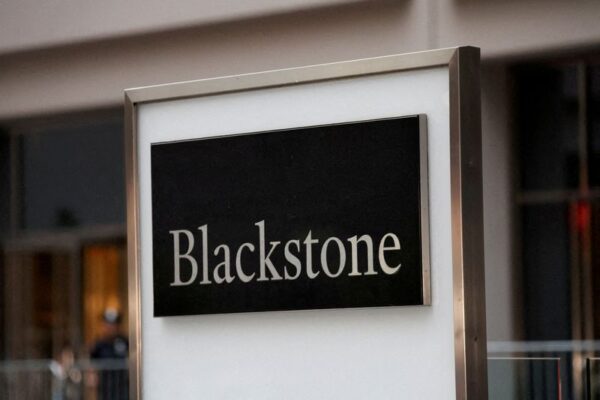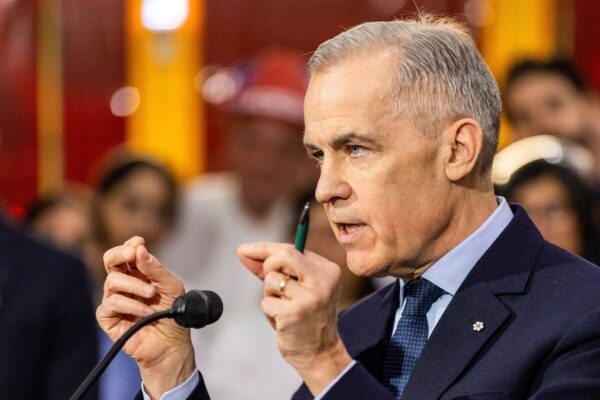Fed policymakers see risk from infections, not inflation
 © Reuters. FILE PHOTO: Senate Banking Committee hearing on Capitol Hill, Washington
© Reuters. FILE PHOTO: Senate Banking Committee hearing on Capitol Hill, Washington
By Ann Saphir and Howard Schneider
(Reuters) -The U.S. Federal Reserve plans to keep its super-easy policy in place even as data shows the economy kicking into higher gear, with policymakers predicting on Thursday that an expected increase in prices this year will fade on its own, and warning about the recent uptick in COVID-19 infections.
“Cases are moving back up here, so I would just urge that people do get vaccinated and continue socially distancing,” Fed Chair Jerome Powell, who has had his shots, said at an economic forum during virtual International Monetary Fund and World Bank meetings. “We don’t want to get another outbreak; even if it might have less economic damage and kill fewer people, it’ll slow down the recovery.”
Speaking at a separate event, St. Louis Federal Reserve Bank President James Bullard said the Fed should not even discuss changes in monetary policy until it is clear the pandemic is over, tying future Fed discussions tightly to the success of the vaccination effort.
The Fed has said it will keep buying $120 billion in bonds a month until it sees “substantial further progress” toward meeting the central bank’s employment and inflation goals.
Bullard said he regards that as contingent on beating the coronavirus. “We have to get the pandemic behind us first,” he said. “There are still risks, and things could go in a different direction.”
The Fed has long said the virus, which touched off the sharpest downturn in decades just over a year ago, will determine the course of the recovery.
Some 3 million Americans are getting vaccinated every day, and a majority of older Americans at highest risk of dying from COVID-10 have been fully vaccinated.
That, along with last month’s $1.9 trillion pandemic relief package and the Fed’s near-zero interest rates, sets the economy up for what Fed officials expect to be the fastest growth in 40 years this year.
But new variants of the virus are driving surges in caseloads in swaths of the Midwest and Northeast particularly.
Minneapolis Fed President Neel Kashkari told the Economic Club of New York in yet another virtual event on Thursday that those variants, and the school and daycare center closures they could force, are the “biggest risks” to the U.S. recovery.
Meanwhile, much of the world has barely begun mass vaccinations, posing what policymakers said was another risk.
Fed policymakers do expect a surge in spending in coming months, along with bottlenecks in supply, to push prices higher this year.
They say that’s unlikely to turn into the kind of upward spiral in prices that would constitute worrisome inflation and require the Fed to respond with rate hikes.
“We think there will be upward pressure on prices which may be passed along to consumers in the form of price increases – we think that that will be temporary,” Powell said, noting that inflation has been low for 25 years, feeding into a psychology of low inflation expectations.
And despite a government report last week showing U.S. employers added nearly a million jobs last month, there are still nearly 9 million fewer employed people in the American economy than there were before the pandemic.
Powell said he would want to see “a string of months like that so we can really begin to show progress toward our goals.”
The unevenness of the recovery, too, is a serious issue, Powell said, with minorities, women and workers in sectors like leisure and hospitality faring worse than others.
Fed policymakers boosted their forecasts for growth, inflation and employment this year, but Powell noted that would not necessarily feed into any policy change.
To judge whether it was time to reduce asset purchases, Powell said, “we are not really looking at forecasts for this purpose, we are looking at actual progress” on inflation and employment.












 Bitcoin
Bitcoin  Ethereum
Ethereum  Tether
Tether  XRP
XRP  USDC
USDC  Solana
Solana  TRON
TRON  Figure Heloc
Figure Heloc  Lido Staked Ether
Lido Staked Ether